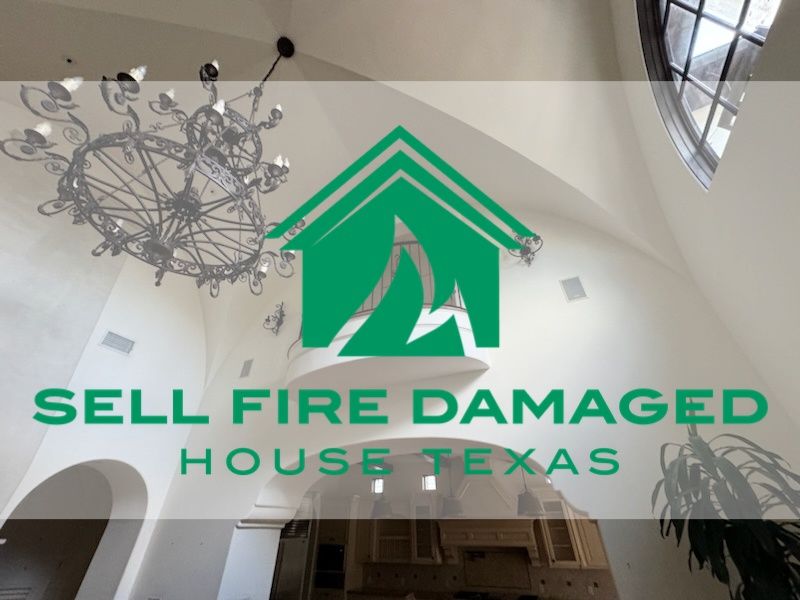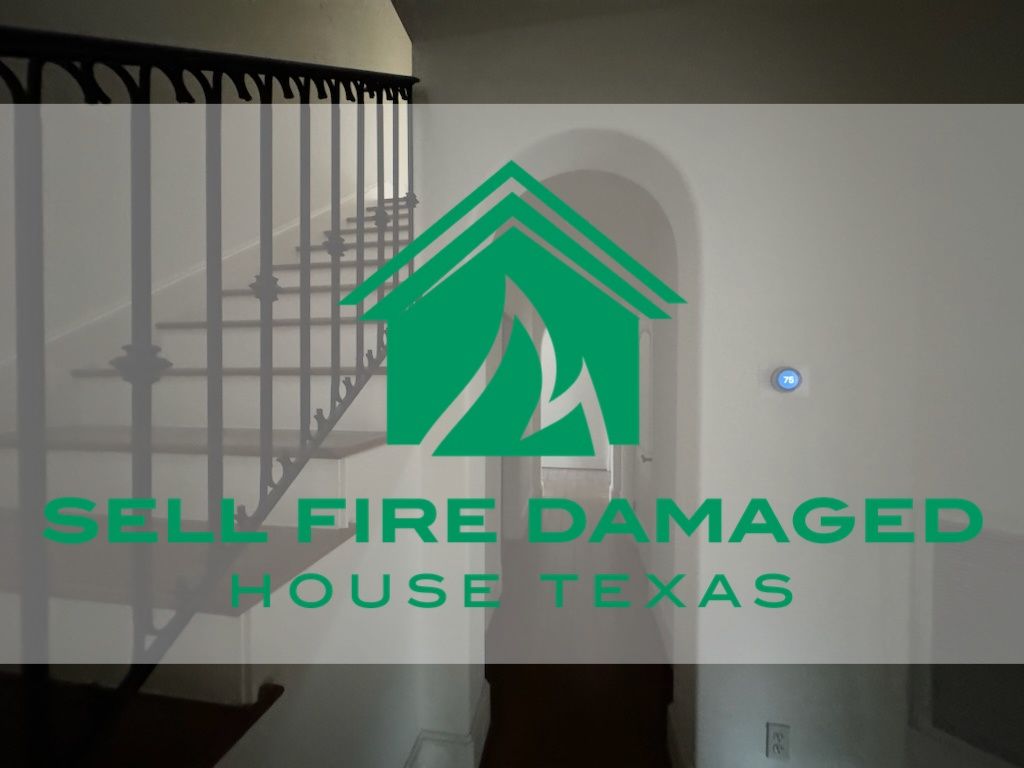What To Say To Someone Whose House Burned Down In Texas: Showing Care Through Words And Deeds
Published on February 05th, 2025
Mia Bennett
AUTHOR
Free Offer Form
A house fire is a tragic event resulting in the loss of memories, property, and life. However, what happens if a dear friend or family lost their home to a fire?
Of course, we want to show empathy during this difficult time. But because losing a home is traumatic for fire victims, saying the right thing feels difficult.
Fortunately, you can support your loved ones in many ways. Being there for them, helping them rebuild, and showing your willingness to help can impart a much-needed feeling of hope.
We've compiled a guide on
what to say to someone whose house burned down, how to show support, and ways to help them rebuild their life.
Expressing Sympathy and Understanding In Texas
Whenever you hear that friends or family members are going through a difficult time, it takes time to know how to talk to them.
After all, you don't want to act as if nothing happened. It's normal to stress over not knowing what to say.
At the same time, you cannot tell them to stop being sad and move on within a few hours.
When someone loses their home due to fire, empathizing with them gives a strong sense of support and care.
Empathy: A Crucial Element
Empathy is the ability to understand and share the feelings of another. It's innate in all of us and can be shown through our support towards friends and family members.
Whenever anyone we care about experiences a difficult time, especially with lost property or death, the need for empathy becomes stronger than ever.
Even if we cannot understand their feelings, we can let them know they're not alone.
People show empathy differently, either through actions or words. In this situation, your words can greatly impact their feelings.
Carefully choosing what to say is the first step in showing empathy. Whether you had a rough week or feel like you have worse struggles, all fire victims want to hear are comforting words.
Comforting Words: Dos and Don'ts
A house fire is a sensitive topic, so pick your words carefully. These are ideas for messages to say:
- "I am so sorry this happened."
- "I am here for you whenever you need help."
- "You and your family are in my thoughts."
- "Is there anything I can do to help?"
- "You can talk to me and share your feelings."
- "You're a strong person, and I know you will get through this difficult time."
All these messages offer support without dismissing what happened. They acknowledge that they lost money, family, and possessions. They give the person a choice to accept help.
Knowing how to move forward is difficult whenever a tragic event happens.
You provide comfort without being overbearing by understanding this difficulty and giving them time while simultaneously reminding them that they are not alone.
However, we do not recommend saying variations of these messages:
- "I'm sorry for your loss, but you will get over it eventually."
- "Other people in the world are going through worse things."
- "Those are just stuff you lost; you can buy them again."
- "Cheer up and look at the bright side. At least your husband, wife, or kids are safe."
Not only are these words insensitive, but they are full of assumptions. It minimizes their loss and worsens their emotions.
When choosing what to say, imagine you've lost your home. Look back on past conversations and how this person reacts to empathy, and fit your message to what would comfort them.
Expressing Sorrow: "I'm so sorry"
One way to empathize with a fire survivor is to express how sorry you are about the house fire.
For fire victims, it feels difficult to hear many people expressing sorrow, especially when the fire just occurred.
However, saying sorry shows you feel for their loss and value their happiness. It emphasizes that you care for them, allowing them to feel open towards you.
But don't overuse this phrase. If a fire victim always hears, "I'm sorry for your loss," they may feel more upset than glad. It might make them feel you are looking down on them, straining your relationship.
Showing Care: "You're in my thoughts"
Letting friends or family know you're thinking of them as they rebuild their lives has a great emotional impact. Losing one's home, family, and belongings to a fire could increase loneliness.
You remind them they are not alone by saying they are in your thoughts.
Offering a Listening Ear: "I'm here if you need to talk"
When tragedy strikes, and we lose life or shelter, one way to say you care for a friend or family member is to listen.
"I am here if you need to talk" shows your willingness to put aside your time and listen to them.
However, make sure you mean it. Fire survivors sometimes feel abandoned after the fire dies. Ensure that you provide a safe space and are ready to hear them out.
Hopeful Remarks: "I hope the insurance company covers everything you lost"
Unless you helped them get insurance, saying this message could be tricky. While this friend might have good insurance, the opposite could be likely.
Before saying this, make sure that this friend or family member has discussed their insurance at some point.
However, encouraging hope is still a good way to comfort this person.
Encouraging Resilience: "It's amazing how resilient we are when it comes to rebuilding our lives after tragedy strikes"
Though this tragedy may affect their way of life, motivating them about recovery helps improve their mood.
Remind them there's hope for recovering lost money, property, and possessions. However, do not overdo it and act like it is easy.
Let them know that recovery takes time, but it is possible.
Avoiding Insensitive Remarks
The last thing any fire survivor wants to hear is insensitive, rude remarks about their loss.
Just like you do not want to feel disregarded, be kind and aware of how sensitive the fire is to them.
These are topics to avoid:
- Do not compare them losing their house to a fire to another problem you experienced.
- Avoid saying they lost "just stuff" in the house fire. These items are important to this person.
- Do not ignore the issue and act as if nothing occurred.
- Do not make assumptions about their living and financial situation.
- Do not overwhelm them with messages.
Saying kind messages to these friends and family is good, but give them space.
Practical Ways to Offer Support In Texas
While kind messages can comfort a friend or family member who lost their home to a fire, going beyond these messages and further helping them is often the best care they need.
After losing so much to the fire, knowing the next steps to rebuild their life could feel impossible.
Some of the best ways to show you care include the following:
Donate money or items- Help with the cleanup process
- Help care for their children
- Let them know that their friends care for their happiness
Monetary or Item Donations
Usually, the biggest concern someone faces after a fire is paying for rebuilding, cleanup, and temporary accommodation. In severe cases, they could struggle with medical or funeral expenses.
Even if you assume that their insurance might cover these expenses, make an effort to help financially or donate furniture, clothes, or toys if they have a child.
Your fire-afflicted neighbors may need to learn how to ask for donations after a house fire. Encourage your community to donate money, items, or essential stuff to those affected by the house fire.
Start a donation campaign or talk with them about the funds or stuff they'll need most during recovery.
Sending Flowers or Gift Cards
Sometimes, all we need to feel loved during tragic moments is to be surprised with gifts and flowers.
If you live far away from the affected friends or family, let them feel loved with a surprise flower arrangement and gift cards for food, clothing, or essential goods.
Aid with Cleanup and Rebuilding
There may be times when the affected person's insurance company will not cover the fire aftermath cleanup, either due to their policy or other factors.
If this situation arises, step up and offer to help them. Provide cleaning supplies and let them direct how to clean up the burned home and any new plans for rebuilding.
However, don't impose help if they don't want it. Instead, you can still show kindness by donating cleaning supplies for them or recommending companies that can help.
Supplying Meals and Other Necessities
One of the biggest struggles victims face after they lose their house is having enough food to eat. Their nutrition could suffer with money lost to the fire and few meal options. It's especially challenging if kids are involved.
If you have any unused canned foods or quick meals, donate them to them. These meals will not only keep them going, but are proof of your kindness.
Talk to community members and encourage a food drive for those affected by the house fire. Everyone working together to help is a tangible way to show kindness and help your neighbors.
Assistance in Finding a Local Contractor or Construction Company
Research or talk to local contractors or construction companies as major reconstruction is needed.
Because your friends or family are preoccupied with finding temporary shelter or gathering resources, you can help them by handling the construction yourself.
Research affordable and trustworthy construction companies and discuss the house fire with them. Get a quote to see how quickly they can rebuild the house.
Offering Personal Assistance: Babysitting and More
If they have children, offer to look after them. Get to know their kids, gift them toys, and listen to them if they open up about their trauma.
This works similarly if they have pets instead. Look after the pets and care for them as your friends or family work on rebuilding the home.
You could accompany them to a grocery store and do errands for them. Even if you don't say much, being there for them helps alleviate the feeling of being alone in the world after the fire.
Use your talents to help. If you know how to sew, you could mend or create new clothing for them. If you can cook, send them meals that they would love.
All these actions show them they're not alone in the world and that they will be cared for.
Crafting a Sympathy Card In Texas
If you want to touch their heart, write them a condolence letter. Note how sorry you are about the tragedy and remind them you are willing to help in any way possible.
Sending them a sympathy card or note gives them a physical memento of your care for them, showing you want to go the extra mile to help.
Selecting the Right Words
Like spoken messages or text chats, it's best to be careful with how you word your card.
Depending on how close you are with this person, you can remind them of the times you helped one another and how you are willing to step up for them now.
Using humor to a respectable extent may help break the tension. Encourage them with messages saying how strong they are and how you know good things are in store for them after this tough time.
Sympathy Card Message Samples
The best way to write a sympathy card is to be straight to the point about how you feel about what they lost while emphasizing your willingness to help.
These are examples of what you can write in a sympathy card or note:
- "We heard about the fire and are so sorry for your loss."
- "I'm so saddened by the fire. I hope you know that I'm always ready to help."
- "Thinking of you and wishing for moments of peace and comfort during this time."
- "So many people love you, and you can ask us for help anytime."
Even with a simple yet heartfelt letter, you can remind them that not everything is lost in this world.
Sensitivity Towards the Person's Situation In Texas

Just like avoiding insensitive messages is important during this situation, respecting their space and timing your approach is equally important.
Grief takes months or even years to recover from, and if they lost everything in the fire, then the grief may not seem recoverable at all.
In such cases, giving them time and space can help more than constantly sending messages.
Timing Your Approach
If the fire occurred recently, the person may feel overwhelmed and respond negatively to your messages.
While sending them a sympathizing message is still best, do not spam them with more messages. Be direct with what you want to say, and let it be open-ended.
After sending the message, be patient with them. Understand if they do not reply immediately or leave your message on read. Let them come to you and respond when they feel ready.
Respecting Space and Emotions
While you may only mean well in wanting to help this person, sometimes they just need space.
If they request it or you notice that they are distant, do not hold it against them. They are grieving and overwhelmed by the loss.
Remind them that you're here for them occasionally, and check up on them often.
Consistency and Patience in Support
Part of respecting their emotions during this grieving period is to be patient with them. They may be unresponsive or say hurtful things without meaning to.
They might seem fine externally but then suddenly feel depressed and traumatized.
Once you have shown your readiness to help,
be consistent about it. Be patient if your neighbor or loved one acts differently, and listen to them talk about their feelings.
Emotional Support and Encouragement In Texas
Apart from sending them kind messages and physically helping out, fire victims sometimes need a patient shoulder to cry on.
We know from experience how difficult grief is, and it may feel uncomfortable or awkward for you if you don't know how to care for a grieving person.
Simply listening to them, validating their emotions, and encouraging them through their struggles greatly helps them move forward and find ways to heal their trauma.
Listening to Their Grief
Letting someone talk about their grief, especially if they have lost someone special, could feel challenging. However, being there for them and listening to them vent helps remind them that you care for their emotions.
Remember that you don't always need to say something about their feelings. Let them share their thoughts and be there to comfort them when they feel down.
Acknowledging Their Loss
Sometimes, it feels easier to act like no fire occurred at all. But it's important to help them acknowledge their loss while reminding them that hope and recovery are possible.
If they feel like looking through old photos of the home or sharing stories about their house, listen to them. When they feel down, help them acknowledge the reality.
Remind them that new beginnings are still possible while it is a tragic loss.
Validating Their Feelings
Anger, stress, anxiety, and depression are feelings anyone would struggle with after a fire.
Be patient and validate their feelings rather than getting mad at them for these emotions.
Let them know that you respect their emotions and that it is completely understandable. Pay attention, help them calm down, and remind them that not all is lost.
Offering Encouragement for Recovery
When this person feels like recovery is impossible, encourage them by sharing stories of how other fire survivors regained their homes, how there are still options to recover lost finances, and how many people care for them.
Share similar stories with them and encourage friends to remind this person that they are willing to help whenever needed.
Post-Disaster Recovery and Assistance IN TEXAS
Recovery is more than an emotional journey. It's also about the financial burden of reconstructing a home and knowing how to pay people back.
Fortunately, there are still many ways for you to assist them, such as looking into insurance policies, rebuilding the home with them, and providing aid and relief options.
The following post-house fire actions can give your neighbors ideas on what to do next.
Exploring Insurance Claims and Coverage
Most homeowners' insurance policies have fire damage coverage.
Sit with this friend and look over their insurance policy with them. Check if they have any coverage for major damages and how they can contact their insurance company about it.
Take documentation of all the damages with them and help them compile the necessary documents.
Create a personal property inventory alongside them, highlighting all the lost items that need replacing.
However, there are times when the coverage is not enough. While getting house fire aid without insurance is typically difficult, they can fulfill needs like food and shelter through donations and non-profit organizations.
Aid and Relief Options
Many organizations and charities, such as the Red Cross and Salvation Army, can provide immediate assistance after house fire to disaster victims.
They supply food, shelter, medical aid, and financial advice to those in need.
Contact government organizations or charities within your area who can provide similar or further assistance. Let them know the extent of the damages and inform your friend about how this organization or charity can help.
Rebuilding and Recovery Resources
Helping a friend rebuild and recover does not always have to be financial.
There are many ways you can help them without spending too much money:
- Donate construction materials that you aren't using.
- Provide them with cleaning materials.
- Give them a space in your home to rest while rebuilding their house.
- Cook or deliver food to them at the construction site.
- Take their children to school or walk their pets.
- Provide emotional guidance whenever they feel overwhelmed.
- Give or recommend legal assistance if needed.
Engage fellow community members to help out. What matters is that this individual doesn't feel isolated and is reminded of how other people care for them.

Frequently Asked Questions
Knowing what to say and how to help is not always easy when someone loses their home. Find out more regarding how to best help someone whose house burned down.
What Should I Say to Someone Whose House Has Burned Down?
Kind messages like "I'm sorry for your loss" or "I am here if you need help" are good examples of empathy and sensitivity towards them.
How Can I Help Someone Who Has Lost Their Home to a Fire?
You can help someone who lost their house by donating food, money, construction items, clothing, and furniture. Contacting local governments for shelter and medical aid on behalf of your friend or loved one is also a great way to help.
What Should I Write in a Sympathy Card for Someone Who Lost Their Home in a Fire?
Share about how sorry you are for their loss and how you're always thinking of them. Remind them of how resilient they are about past struggles and how you believe in their strength.
How Can I Show My Condolences to a House Fire Victim?
Show your condolences by delivering flowers and gift cards, letting them know you want to help, and guiding them through rebuilding and recovery.
What Should I Avoid Saying to Someone Who Has Lost Their Home in a Fire?
Avoid making assumptions about how they feel and dismissing their sadness. Do not converse as if they are not struggling or compare their problems to yours.
Conclusion
When tragedy strikes, the best way to help is to be kind to each other.
Be mindful about what you say, and time your approach to avoid overwhelming them. Never downplay their emotions, and
let them share or cry to you.
Work with them through the difficult financial and housing processes. Share what you have without expecting anything back.
Most importantly, let them know they
are cared for and are not going through this alone.

